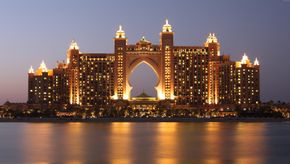CICR – Le symbole de la tradition humanitaire suisse
Marlen Schmidli - Henry Dunant est connu par tous pour être le père spirituel du Comité international de la Croix-Rouge. Ce comité a été créé en 1863 par cinq personnes – dont Henry Dunant et le Général Dufour. Depuis, l’organisation au «drapeau suisse inversé» est devenue le symb...
(Ben)
Le CICR ne jouit pas seulement d'une forte réputation et d’une grande crédibilité sur le plan international. Pour beaucoup d'étudiants, l'Organisation est un employeur attrayant offrant un large choix de postes et de possibilités de carrière, qui permettent de s’engager personnellement pour une cause juste. Médecins ou politologues, les universitaires de toutes les filières peuvent proposer leur candidature au CICR. Le CICR a son siège à Genève et des délégations dans 80 pays. Il offre d’intéressantes possibilités d’emploi à tous ceux qui souhaitent tout particulièrement travailler ou acquérir une expérience à l’étranger.Au cours d’un entretien avec Marco J. Emery, Head Personnel Marketing, nous l’avons interrogé sur son parcours professionnel et les chances d'embauche au CICR:
Students.ch :Mr. Emery, qu’avez-vous étudié et comment êtes-vous arrivé au CICR?J'ai étudié les langues à l’Ecole d’Interprétariat de Zurich (allemand, français, anglais) puis j'ai déposé ma candidature comme délégué au CICR.
Dans quels pays avez-vous exercé votre fonction de délégué?En 1993 au Ruanda, en 1994 en Angola, en 1995 à Nairobi, niveau régional, en 1996/97 en Colombie, en 1998/99 à Gaza, en 1999/2000 en Tunisie, niveau régional, en 2001/02 à Myanmar (Birmanie)
Quelles impressions avez-vous retenu de votre activité de délégué? Quelles ont été vos expériences personnelles?Communiquer et aller vers son prochain est très important. Il faut savoir écouter et faire preuve d’intuition et de chaleur humaine.
Quelles opportunités d’emploi offre la fonction de délégué?Elle ouvre de multiples portes, tout spécialement pour une activité à l’étranger, où l’expérience du terrain et les «soft skills» sont primordiaux.
Est-ce que le volontariat ou des activités dans une organisation non-gouvernementale pendant les études augmentent les chances auprès du CICR?Je n’ai moi-même jamais eu de telles activités, mais elles sont toujours un point très positif dans une candidature!Y a-t-il des filières qui offrent ensuite de meilleures chances d'embauche auprès du CICR?Oui, le Droit, les Relations internationales ou les Sciences Politiques avec quelques années d’expérience professionnelle et/ou à l’étranger, par exemple auprès d’une organisation non-gouvernementale.
Voici le détail des différentes activités et des conditions requise pour un emploi auprès du CICR (en anglais pour te mettre dans le bain…):
International Committee of the Red Cross (ICRC)
The ICRC is neutral, impartial and independent. Its mandate to protect and assist the victims of armed conflicts and other situations of violence has been conferred on it by States through the four Geneva Conventions of 1949, their Additional Protocols of 1977 and 2005 as well as the Statutes of the International Red Cross and Red Crescent Movement.
The ICRC's Mission Includes the Following Tasks:• visits to prisoners of war and civilian detainees• search for missing persons• transmission of messages between family members separated by conflict• reunification of dispersed families• provision of food, water and medical assistance to civilians without access to these basic necessities• spreading knowledge of international humanitarian law (IHL)• monitoring compliance with that law• drawing attention to violations and contributing to the development of IHL
Expatriate field staff:Delegates work directly in the field. They negotiate with the authorities and assess the needs of the civilian population in terms of protection, food and medical assistance. They carry out visits to prisoners of war and security detainees and strive for the reunification of dispersed families. They also organize events to spread knowledge of international humanitarian law and the activities of the ICRC with the national Red Cross, armed forces, the police, government officials, prison staff, etc. Administrators are based either in the capital of the country of assignment or in a sub-delegation near to the conflict zone. They act as personnel managers for national staff, being responsible for their recruitment and employment, including compliance with local legislation. The administrator is in charge of the delegation's budget, accounts and treasury services, and also manages its premises (offices, warehouses, staff accommodation, leases, maintenance, construction, etc.).
Other Positions Include:• secretaries• database administrators• logistics specialists• medical doctors (war surgeons, anaesthetists and specialists in public health or detainee welfare)• nurses• orthotists/prosthetists• engineers and technicians (water and habitat, construction, information systems)• agronomists• interpreters (Arabic, Persian, Pashto, Urdu, Tamil, Singhalese, Kirundi, AlbanianAmharic, Tigrinyia)
Profile of Candidates For Jobs at the ICRC:• 25-35 years of age• prepared to accept unaccompanied postings during the first 24 months of collaboration• for delegates: university degree or equivalent; 2 years of post-graduate professional experience a must• for administrators: commercial diploma (Swiss HWV/ ESCEA) and 2 years of professional experience or commercial apprenticeship diploma, plus minimum five years' professional experience
For specialist staff: (medical personnel, engineers and technicians) recognized training and several years of professional experience in chosen field, ideal age from 25 to 50:• excellent English and French• other useful languages: Spanish, Portuguese, Russian and Arabic• well-balanced personality and strong character• tolerance, team spirit, open-minded attitude• ability to cope with difficult situations and to work under pressure• readiness to assume responsibility and to exceed expectations• valid driving licence (manual)
Contact:Secretariat Recruitment Unit19, avenue de la PaixCH-1202 Geneva
Email: rh_rec.gva@icrc.orgPhone: +41 22 730 25 17/18Web: www.icrc.org
 Login
Login 




















